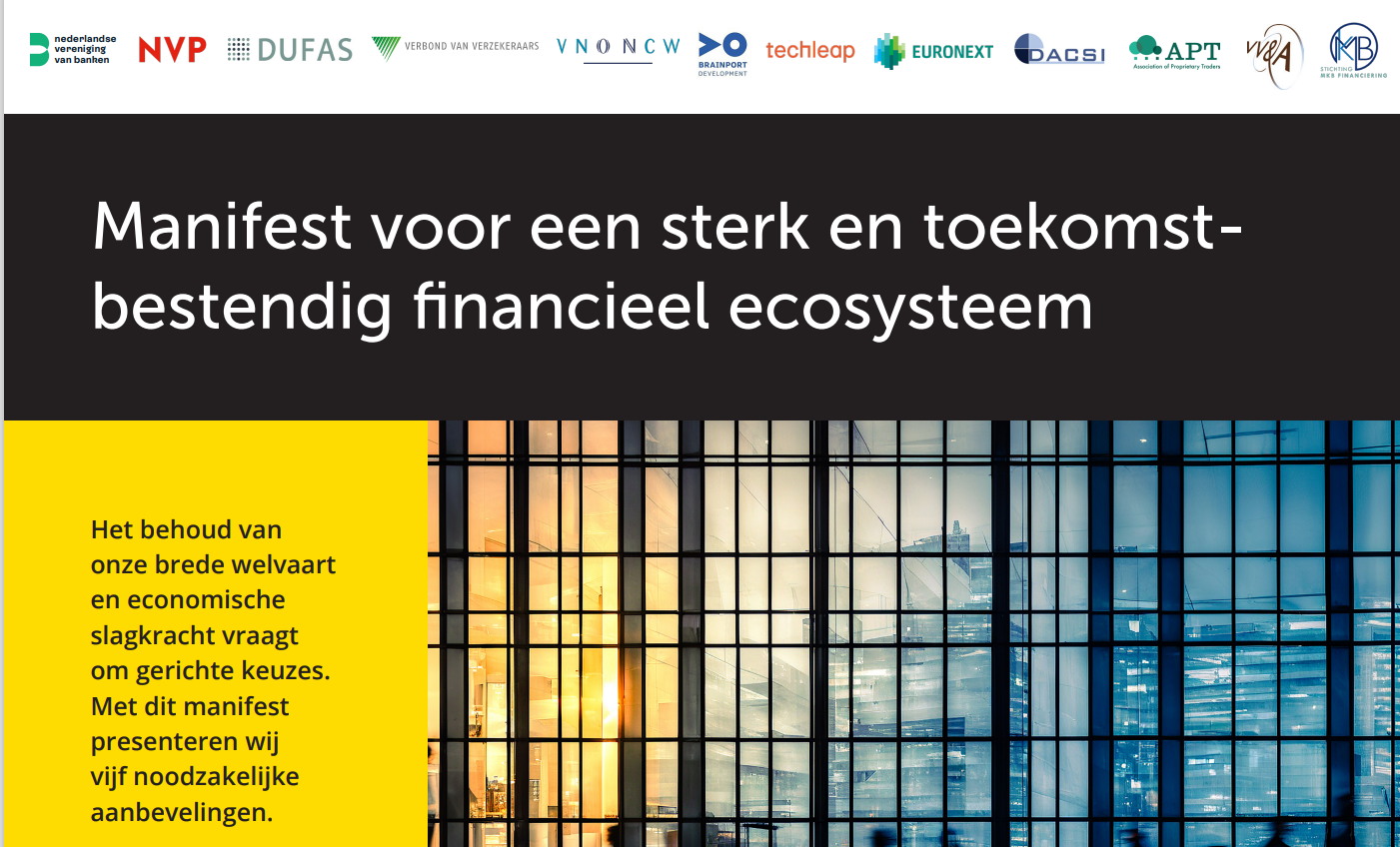
Sandra Klaver supervises investment firms and institutions at De Nederlandsche Bank (DNB). She has worked at DNB since September 2022, having previously been a supervisor at the Netherlands Authority for the Financial Markets (AFM) for a long time. With this background, she has now experienced the supervision of the financial sector from multiple perspectives. In this interview, Sandra talks about the importance of reporting to the regulator and why it is important for asset managers to have their data quality in order.
An asset manager must regularly report to the regulator. But really, why all this supervisory reporting?
"Reports are essential for us to oversee the dynamic and diverse asset management industry. We now work largely ‘data-driven’, which has led, among other things, to us being able to identify risks (early on) and deploy our capacity as efficiently as possible where it is actually needed. This in turn has a favorable effect on supervision costs. We conduct data-driven supervision for the most part on the basis of reports sent in by asset managers themselves. For us, the reports are in fact the ‘single source of truth’. If that data is incorrect, the house of cards falls apart.
But the reports are also useful for asset managers themselves. If the data necessary for the reports is in order, you have – apart from fewer reporting problems – a continuous insight into the prudential situation of the company. In this way you can, for example, identify (impending) capital and liquidity shortages or a future increase in the capital requirement, and you can also ensure in more difficult times that the company can bear all its financial obligations. In practice we see that this can really prevent problems. "
Does industry reporting always go the way it should?
"Unfortunately, reports are not always submitted on time. Late submission of a report is an offense that DNB also enforces and is easily preventable. We also see many reporting errors in terms of content, for example in the calculation of capital requirements. This can lead to re-reports; a report must then be resubmitted because errors have been found in it. We then regularly see that this re-reporting is no longer submitted to us, something that obviously should be done."
How come reporting goes wrong?
"Many times, conversations with asset managers (both large and small) reveal that problems result from the lack of effective and clear data governance: absolutely part of the ‘license to operate’ as far as we are concerned. Missed reporting deadlines or the rapporteur who was on vacation are reasons we often hear for erroneous or late reporting. We also see the lack of up-to-date prudential knowledge a lot. With the right control measures, this could be prevented."
The industry has had a lot of new regulations thrown at it in recent years, hasn’t reporting become too complex as a result?
"We too find that the number of rules is considerable, and I can well imagine that the templates can be complex and ‘dry.’ Yet the legislature also considers proportionality in the reporting process, for example in the frequency of reporting and its scope. And getting to the bottom of it is a basic part of the business, essential for accurate reporting and thus for the proper understanding of both regulator and asset manager."
What specifically can you do as an asset manager to improve the quality of reporting?
"From our supervisory practice, we see two key actions that can help with this:
- Establishing clear data governance regarding prudential reporting: practical procedures and measures in line with daily practice that are actually implemented within the organization and monitored.
- Securing sufficient prudential knowledge and expertise within the organization: once the reporting content is in place, it can also be more easily updated."
How is DNB helping to address this problem?
"Data quality has been a spearhead of ours for years. We have contributed to this in various ways, for example by publishing ‘good practices‘ and points for attention and organizing seminars. Nevertheless, we are not yet seeing the desired effect, which is why we will again monitor this more strictly next year and consider enforcement where necessary.
We are also in regular contact with DUFAS on this subject; you have a very important role in this as sector representatives. By the way, we really appreciate it when ideas or suggestions for our approach are shared with us by asset managers or through DUFAS."
Where can you ask for help?
"Specifically for questions from asset managers about prudential reporting, there is an e-mail address: beleggingsonderneming.rap@dnb.nl. Of course, you can also contact your own regulator. On the website of DNB’s Reporting Service there are comprehensive handbooks for asset managers that are very helpful for reporting and will answer many questions."

